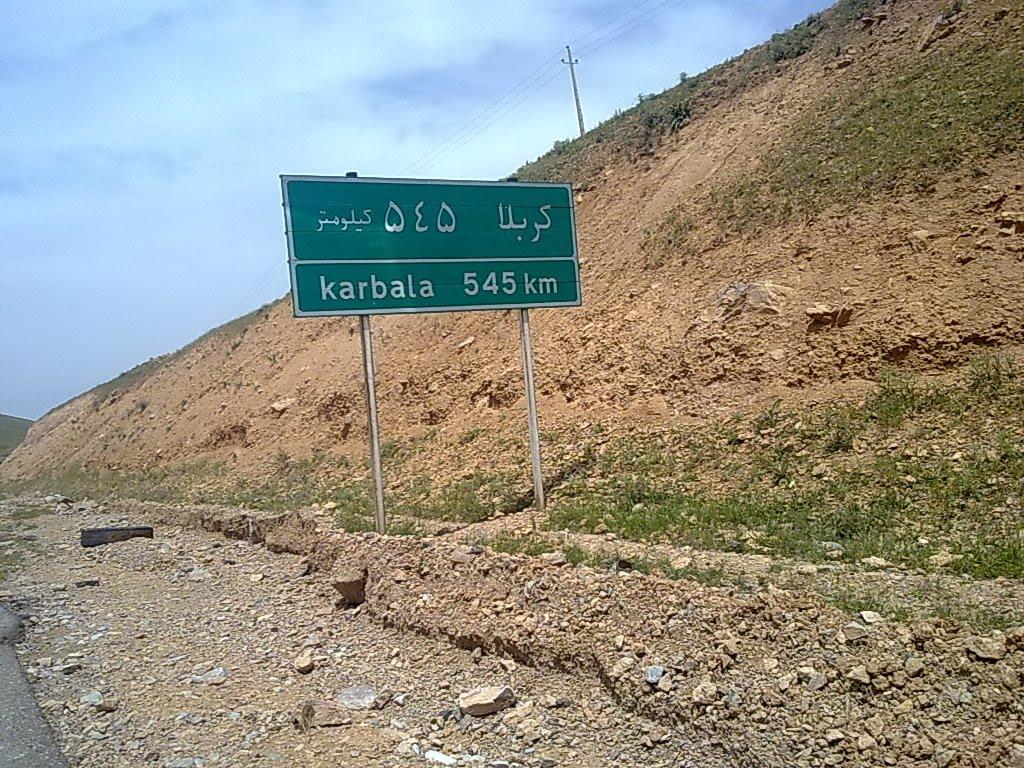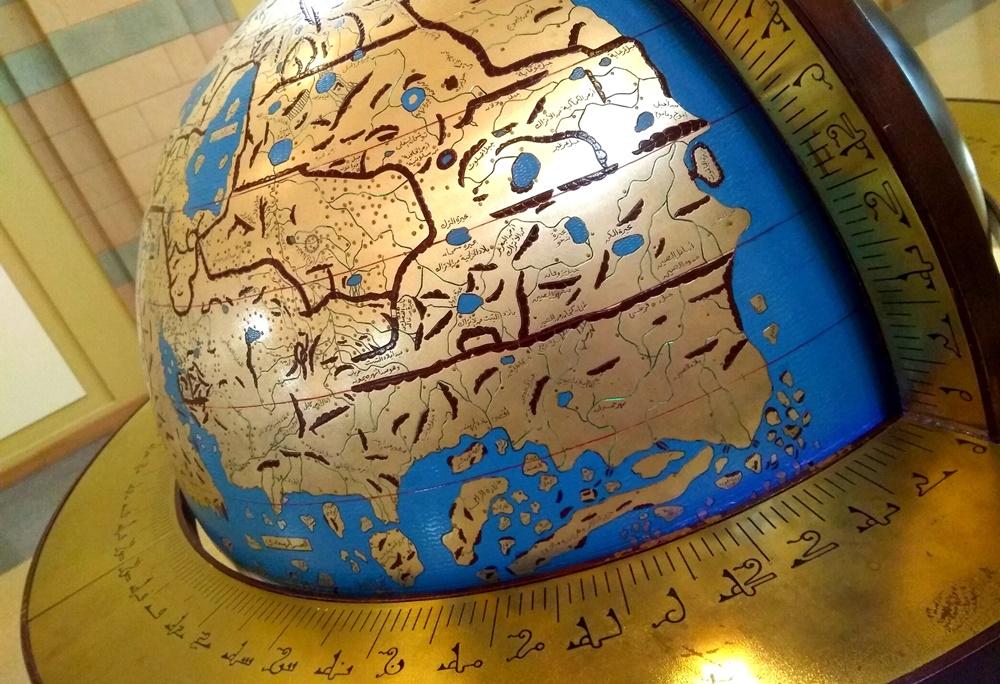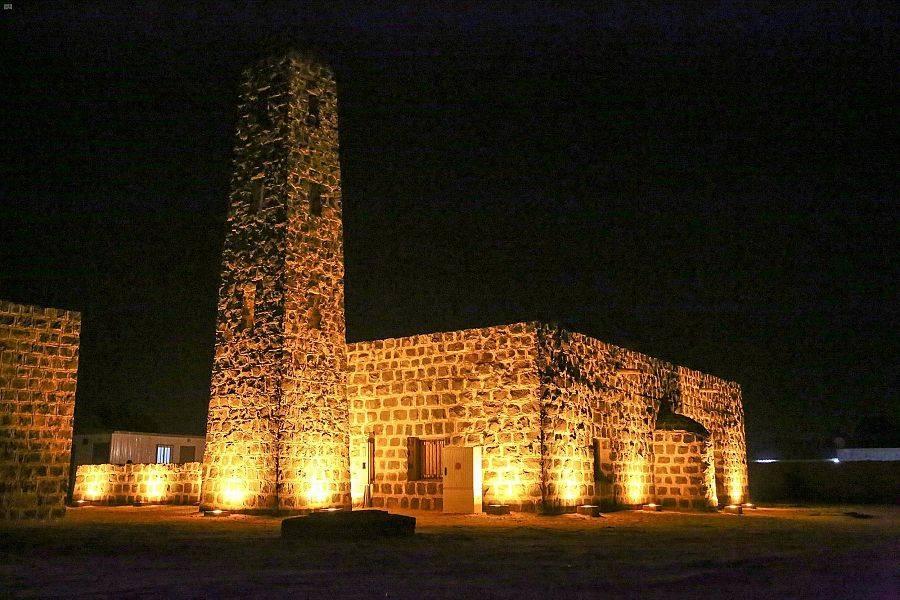“I know even if I were to place myself before your riding camel to stop you, you will still ride over me to go there,” Ibn Abbas cried.
He knew for certain that Hussain (رضي الله عنه) would not change his decision, but Ibn Abbas tried his best. Many other giants among the Sahabah – Ibn Umar, Abu Saeed Al-Khudri and Ibn Zubayr (رضي الله عنهم) – also tried. But Hussain (رضي الله عنه) was firm.
From the time Yazeed ibn Mu’awiah became the new caliph, Hussain (رضي الله عنه) was disturbed with the dynastic approach to the caliphate which was contrary to the previous methods of nomination. He refused to give the pledge of allegiance to the newly nominated Yazeed. Hussain (رضي الله عنه) left Madinah and travelled to Makkah.
The treacherous Kufans (the people of Kufa, Iraq who claimed to be the supporters of the Prophet’s family), noted for their unfaithful reputation, learned of the emotions of Hussain (رضي الله عنه). They sent him letters, lots and lots of letters, which expressed sorrowful sentiments; they wrote of mistreatment, injustice and torture by the new caliphate. They also expressed that they had stopped offering Friday prayers with the caliph and that there was no leader over them. They appealed his leadership to rebel. Hussain (رضي الله عنه), moved by the inundated letters and messengers, decided to respond to the appeal of the Kufans.
But before taking the step, he assessed the situation; he sent his cousin Muslim Ibn Aqeel to investigate the level of support he had in Kufa. When Muslim Ibn Aqeel reached Kufa, the people rushed to swear fidelity to Hussain (رضي الله عنه). So, Muslim Ibn Aqeel wrote a positive message to his cousin and beseeched him to come and govern the movement. Hussain (رضي الله عنه) then decided to move with his family to Kufa.
Hussain (رضي الله عنه) left for Kufa on the 8th of Dhul-Hijjah and on the same date, things in Kufa changed for the worse. The Governor of Kufa, Ubaidullah Ibn Ziyaad, appointed by Yazeed, was primed about the secret assembly of the Kufans and Muslim.
Under harsh incitement and brute force led by Ibn Ziyaad, the disloyal Kufans deserted Muslim and switched their allegiance to Yazeed. Muslim Ibn Aqeel, cheated by Kufans, was then executed by Ibn Ziyaad. Hussain (رضي الله عنه), unaware of his cousin’s fate, continued to march towards Kufa. When Ibn Ziyaad learned about Hussain’s (رضي الله عنه) arrival, he ordered the pathway of Kufa to be blocked for him.
When Hussain (رضي الله عنه) reached an area called Zubalah, he learned about the execution of Muslim Ibn Aqeel. However, he still continued. When he reached Iraq, the troops of Ibn Ziyaad did not permit him to enter Kufa.
A general from the forces of Ibn Ziyaad communicated with Hussain (رضي الله عنه); when Hussain (رضي الله عنه) was informed about the backtracking of the Kufans, he turned towards his army in awe and acknowledged that the reason behind his arrival was their reiterated calls, and if they had any aversion towards him, he would not hesitate to go back. The cruel Kufans refused to let him go. So, Hussain (رضي الله عنه) continued in a direction which neither led him to Makkah nor to Madinah, but to the fateful land of Karbala.
Hussain (رضي الله عنه) and his army camped at Karbala on the 2nd of Muharram. By the 7th, the troops of Ibn Ziyaad surrounded the army of Hussain (رضي الله عنه) and demanded an oath of allegiance from him to Yazeed. Hussain (رضي الله عنه) sternly refused to surrender. Upon this, the tyrannical army ordered to cut off water supplies to the army of Hussain (رضي الله عنه).
After three days of exigency, the tenth of Muharram arrived. The commander of Yazeed’s army was now Ibn Sa’d who insisted Hussain (رضي الله عنه) to show himself in the battlefield and commence the matter with the sword. A fierce confrontation took place, and the Prophet’s grandson fell dead on the land of Karbala on the 10th of Muharram.
Seed for the Shia Sect
The martyrdom of Hussain (رضي الله عنه) thus became a seed for the Shia sect. Their history is quite old – it traces back to the era of Uthman (رضي الله عنه). A jew named Abdullah Ibn Sabah who disguised himself as a Muslim went to Kufa to originate his evil plot; he started off of by selecting people who lived away from Hijaz (Makkah and Madinah) to keep himself and his activities away from the knowledgeable Sahaba.
He chose weak men to be his prey; men who had wavering faith, were interested in positions, had some sort of inclination towards their previous faiths, and had less or no knowledge of Islam. He very wisely seeded doubts regarding the religion, and trained them to rebel against the caliph Uthman (رضي الله عنه). It was Abdullah Ibn Sabah who devised doubts about the caliphate; he began to preach that Ali (رضي الله عنه) deserved the caliphate more than Uthman (رضي الله عنه) due to Ali being a member of the family of the prophet ﷺ.
He also raised many other doubts and false accusations about other great sahabah. Eventually, the rebels killed the caliph and opened the doors of chaos in the ummah, which still exists today. The rebels existed in secrecy during the era of Ali (رضي الله عنه) and caused discord and anarchy in the ummah. Some were exposed and executed for calling Ali (رضي الله عنه) God. They continued to remain behind the walls during the time of Hasan (رضي الله عنه) and Muawiyyah (رضي الله عنه), trying hard to eradicate the Ummayad caliphate but they could not succeed. They tried with Hussain (رضي الله عنه), and got their pull. His martyrdom became a strong colonnade for their apparent embodiment.
Overriding Religion with Emotions
After the death of Hussain (رضي الله عنه), the “Imaamate” of Ali’s (رضي الله عنه) progeny became as much of a dogma in the Shiite creed as that of the prophethood in Islam. His martyrdom became a reason for their battlecry for justice and revenge. Their love for Ali (رضي الله عنه) and his family went up to absurd extremes; some claimed Ali (رضي الله عنه) was better than the Prophet ﷺ, they cursed Jibreel for not delivering the Quran to Ali (رضي الله عنه), many manipulated the verses of the Quran, and some even claimed that Ali (رضي الله عنه) was Allah!
There also arose many bizarre sects from the Shia sect and mentioning them will be exhausting. They also introduced eccentric practices – such as lamentation on the 10th of Muharram – that had no basis in the religion that Allah revealed, and some considered cursing the Sahabah a part of faith. There is a lot more, but eventually the beliefs and practices that the Shia formed had no basis in Islam.
Nothing can change religion, not even Karabla
“Verily, We have revealed the Reminder, and verily We shall preserve it.” (Quran, 15:9)
The word ‘reminder’ in the verse refers to the Quran. Not a word has been changed, not even one. No one tried to manipulate it except that they failed. The Quran which we carry today, through which we seek guidance and knowledge is under the armor of Almighty Allah and is intact in its essence, purity and message.
Allah (Subhanuhu wa Ta’la) says in the Quran:
“This day, I have perfected your religion for you, completed My Favour upon you, and have chosen for you Islam as your religion” (Quran, 5:3)
This verse is a clear proof that Allah (Subhanuhu wa ta’la) perfected the religion through his last messenger Muhammad ﷺ, so how is it admissible from anyone to alter or change something that has already been perfected?
In Surah Baqarah, while mentioning the stories of previous prophets and nations, Allah (Subhanuhu wa ta’la) gives us a powerful reminder:
“This (was) a community (which) has passed away, for it what it earned and for you what you have earned. And not you will be asked about what they used to do” (Quran, 2:134)
So, whatever happened in history, their deeds are with Allah. Injustice is an old story of this world. On the Day of Judgment, Allah, the creator of everything that exists, will be the judge, and there will be no injustice then. This is Allah’s Promise. Every unjust soul will bear for its actions and every just soul will be rewarded In sha Allah. Upon this promise is our belief.
What happened in history is a lesson from which we are to take admonition. It can no way become an evidence to change the laws of Allah. And if anyone does, Allah has already warned us of what happened to the previous disobedient nations.
“But those who wronged among them changed [the words] to a statement other than that which had been said to them. So We sent upon them a punishment from the sky for the wrong that they were doing.” (Quran, 7:162)
Some pondering needed: Allah (Subhanuhhu wa ta’ala) says:
“Muhammad ﷺ is no more than a Messenger, and indeed (many) Messengers have passed away before him. If he dies or is killed, will you then turn back on your heels (as disbelievers)? And he who turns back on his heels, not the least harm will he do to Allah, and Allah will give reward to those who are grateful.” (Qur’an 144:3)
The Prophet’s death ﷺ moved his loved ones. It was certainly heavy and hard on them. But they did not leave or change the religion. Allah (Subhanuhhu wa ta’ala) has explained how it is unacceptable for anyone to turn back on heels (change his or her religion) due to anything, not even the death of the most beloved person. Karbala was a fateful incident, a decree. Whatsoever happened will be judged by Allah, the creator, but nothing can change the religion.
May the peace and blessings of Allah be upon the Prophet ﷺ, his family, his sahabah and upon all those who follow them. Ameen!
References:
- The Biography of ‘Uthman ibn ‘Affin, Dhun-Noorayn By Dr Ali Muhammad as-Sallabi Translated by Nasir Khattab
- The History of Islam by Akbar Shah Najeebabadi, Vol 1
- Ibn al-Jawzee’s The Devil’s Deception Edited Translation by Dr. Abu Ameenah Bilal Philips
- Imam Hussain (may Allah be pleased with him) and the tragedy of Karbala, A chronological account of the matryrdom of Hussain (may Allah be pleased with him) based on reliable sources by Allama Shahid Raza Nai’mi and Allama Hafez Ather Hussain Al-Azhari








 Dr. Bilal Philips
Dr. Bilal Philips